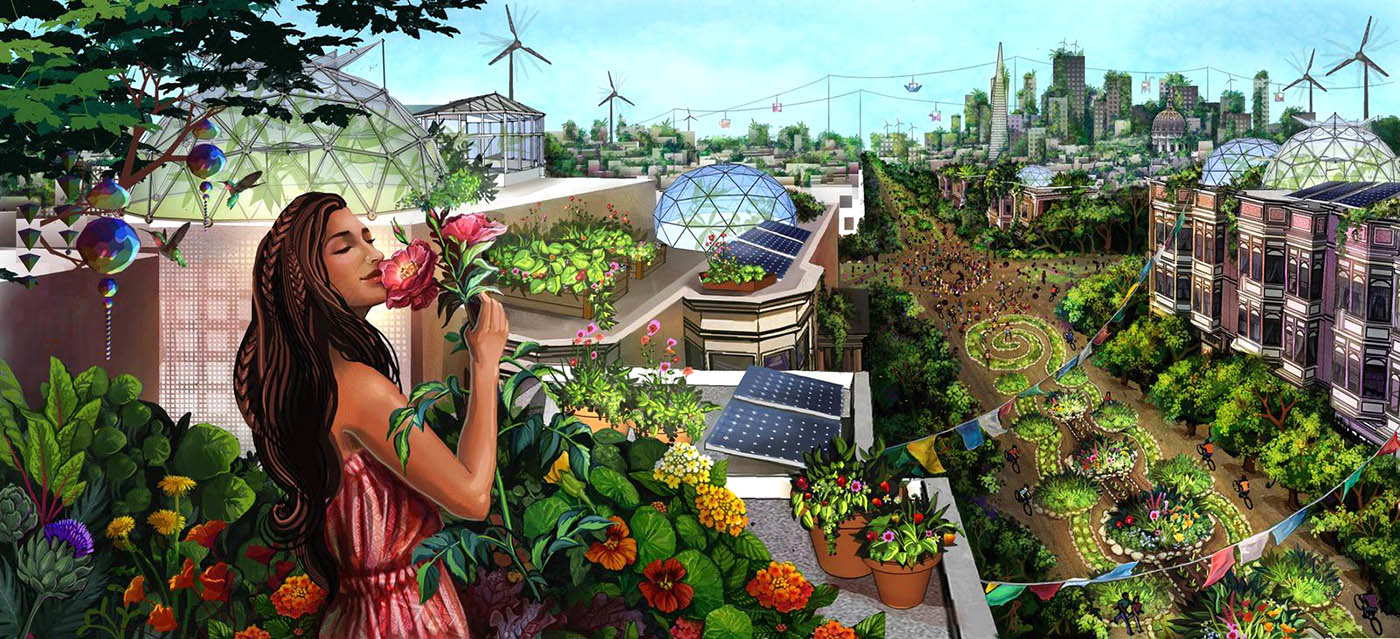
“The problem with utopia is that it is reached only across a sea of blood, but you never arrive.” These are the words of renowned political commentator Peter Hitchens. His is a sentiment that is echoed and shared by many people. The idea of a perfect place to live sounds ludicrous; notwithstanding, politicians and public officials bombard us every day with promises of change and solvable issues that would improve our lives. Either politicians are certified liars, or every issue can be resolved, which thus gives us a chance to be part of something truly perfect.
By analyzing the many utopias that have existed, we will answer the question that everybody has asked themselves at one point or another: is the perfect world a possibility?
Creating Nowhere (Utopia)

Thomas More, a British philosopher, released in 1516 On the Best State of a Republic and on the New Island of Utopia. The name of the island originates from the forging of two Greek words, “ou” (no) and “topos” (place). Just like that, the term utopia was born. On its surface, utopia describes worlds and cities that aspire to be perfect, but underneath, it cheats itself, as the place that does not exist. As much credit as the Catholic saint deserves, if we are to deep-dive into the perfect society, the island of Utopia must take a step back and allow for the first-ever proposition of nowhere land.
Ancient Paradise

Controversial as it may seem in today’s political climate, it was Plato’s Republic that initially described how a proper society must function. In his utopian vision, Plato constructed an ideal state based on his soul trifecta, which professed every human soul was composed of appetite, courage, and reason. In his republic, there were three categories of citizens: artisans, auxiliaries, and philosopher-kings, each of whom possessed distinct natures and capacities.
Artisans were dominated by their appetites and therefore destined to produce material goods. Auxiliaries were ruled by courage in their souls and possessed the spirit necessary to protect the state from invasion. Philosopher-kings had souls in which reason reigned over courage and appetite, and for that reason, they possessed the foresight and knowledge to rule wisely.

On the other hand, the island of Utopia was much more thorough in its composition and set of rules with a traced map included. Utopia had 54 cities, where all except for the capital were identical. Everything was public, and there was no private property. All houses and towns were of the same size, and to avoid sentimentalism, everybody had to move each passing decade. Everybody made their clothes identically. The only possible difference was between the clothes of men and women.
People were assigned two slaves per household. Everybody worked six hours per day, and if by any chance there were surpluses, labor hours were shortened. At eight past midday, there was a curfew, and everybody had to sleep eight hours. Education was meritocratic. If someone could perform a discipline they did, on the contrary, it was prohibited because they would not be contributing their best to the community.
Both More and Plato presented their utopias more like an essay or trial. They dealt only with the rules and standards of their world but had little regard to how human interactions would be during their perfected societies. Utopias become more tangible through the eyes of fictional writers and creators. The telling of events, consequences, and fantasies encountered by real people add much-needed fleshing.
The Road to Magic Kingdom

What Plato and More failed to consider when creating their utopias was the price people would have to pay by living in their delicately crafted fantasies. There’s even a naivety to their approach (justifiably so due to the ancient societies they lived in); they feel like an actual proposition to the way society was handled, and an impossible proposition in that.
Contemporary creators came up with perfect worlds that feel more consistent considering the pros and cons of the ideas put forward combined with the fragility and destructiveness of the human condition.
Erewhon – Samuel Butler
Erewhon is an island whose name forms from an anagram that spells the word nowhere. The Musical Banks and the goddess Ydgrun are the two deities of Erewhon. The first is an institution with antique churches that is only backed by lip service and mainly functions as a bank. Ydgrun is a goddess that no one is supposed to care about, but most people worship secretly.
In Erewhon, a person faces punishment for having a physical ailment and execution in the case of incurable or chronic conditions. If a person commits a crime, on the other hand, they get medical attention and a whole lot of sympathy from friends and family.
People receive education in the Colleges of Unreason, which nurture scholars in the advanced study of hypothetics as well as the basic disciplines of Inconsistency and Evasion. Erewhonians believe reason betrays men, allowing for quick conclusions and the creation of concepts using language.
Herland – Charlotte Perkins

Herland describes an isolated society composed of only women who reproduce asexually. It is an island free of crime, war, conflict, and social domination. Everything from their clothing to their furniture is identical or built with those ideals in mind. The women are intelligent and astute, unafraid and patient, with a notable lack of temper and seemingly limitless understanding for everybody.
A volcanic explosion killed almost all men hundreds of years ago, and those who survived were kept as slaves and later assassinated by the woman who ruled. The women in the present have no recollection of men. They don’t understand biology, sexuality, or even marriage.
The Giver – Lois Lowry
This utopian society is governed by a council of elders who control everyone and everything. People don’t have names, and everyone refers to each other depending on their age (sevens, tens, twelves). There are separate rules for each age group, and they must account for every single one (clothing, haircut, activities).
The council of elders assigns a job for life at the age of twelve. Everyone is administered a substance called sameness, which removes pain, joy, and every strong emotion possible. No evidence of disease, hunger, poverty, war, or lasting pain exists in the community.
All families in the community include a caring mother and father and two children. The people appear to love each other, but they don’t know what love feels like because their reactions have been trained.
Logan’s Run – William F. Nolan

Humans live in a city protected entirely by an encapsulated dome. They are free to do whatever they like and please, but by the age of 30, they must report to the rite of the carousel, where they are told rebirth awaits and willingly accept it. A computer controls every aspect of human life, including reproduction. They have a device in their hands that changes color whenever they have to enter this rite, which will ultimately fool them into death with laugh gas.
All utopias come with heavy prices to pay for society. Are we supposed to throw away all reason and critical thinking like the people from Erewhon? Can we bear to ignore all that science has taught us about biology and sexuality? Will we forsake all individuality to let an advanced machine rule for us?
The major problem is that they built perfect societies with perfect humans and disregarded almost completely human nature. Corruption, greed, violence, goodwill, and responsibility are all overlooked. That’s why most of them are built-in outside worlds or mystical places, locations where the reality of what is happening can be forgotten. This is where utopia shows its true face and reminds us of its closest brother: dystopia.

Of course, there is a perfect world for many inside dystopias. Who’s to say Big Brother’s goons were not having the time of their lives in George Orwell’s 1984. What about Captain Beatty’s ultimate power in Fahrenheit 451? Are we that afraid to say there are certain people today living the best life possible?
The main problem with utopias is not creating a perfect world, it’s persuading people to adhere to it. So, the primary question now becomes: has there ever been somebody with that persuasive prowess?
Crumbling Eden
Throughout history, there have been examples of utopian societies, real ones, not aspiring ones like the Soviet Union or Cuba. Suffice it to say that they haven’t had the intended success.
New Harmony

In a small town in Indiana, Robert Owen built a communal society with no private property and where everybody shared work. The currency was only valid within this community, and members would provide their household goods to invest their capital into the community. The town was governed by a committee of four members chosen by Owen, and the community would elect three additional members.
Several factors led to an early breakup. Members grumbled about inequity in credits between workers and non-workers. In addition, the town became overcrowded quickly. It lacked sufficient housing and was unable to produce enough to become self-sufficient. A shortage of skilled artisans and laborers along with inadequate and inexperienced supervision contributed to its eventual failure after only two years.
The Shakers
The United Society of Christ’s Second Appearance had four principles: communal lifestyle, absolute celibacy, confession of sins, and living confined from the outside world. They believed that God had both a male and female counterpart, that the sin of Adam was sex, and that it should be removed completely.
The church was hierarchical, and at each level, women and men shared authority. The Shaker communities decreased swiftly since believers did not give birth to children. Economics had a big impact as well, due to hand-made products by Shakers not being as competitive as mass-produced products and individuals moved to the cities for better livelihoods. There were only 12 Shaker communities left by 1920.
Auroville

This experimental township in India was founded in 1968. Instead of coin currency, residents are given account numbers to connect to their central account. Residents of Auroville are expected to contribute a monthly amount to the community. They are asked to help the community whenever possible with work, money, or kind. Aurovilians in need receive monthly maintenance, which covers simple basic needs of life from the community.
As of January 2018, it has 2,814 residents. Conflicts within Auroville must be solved internally, and the use of law courts or referral to other outsiders is considered unacceptable and to be avoided if possible. The BBC released a documentary in 2009 where cases of pedophilia were discovered within the community, and people had no problem with it.
History teaches lessons, and if there is to be one about utopias, it is that they are journeys more than destinations. The surrender of values, autonomy, or reason has led no one closer to achieving it.
Utopia Realized: A Perfect World?
Utopias are said to be helpful because they can trace out maps of where we want to be in the future. The issue lies in which person or group will be designing such a map and whether everybody else agrees with it.
Imagine a division of the world as follows: universal, country, city, community, family, and individual. Utopias are conceived at the highest level, and all other levels have to adjust to that ideal. A top-down approach will eventually succumb to evolutionary pressures. As we saw with Plato and More’s perfect states, a constant ideal will hardly survive an evolving world.
Perfection is impossible because everybody has different ideas in which they believe; a utopia would have to emerge from a combination of them all. A set of beliefs that are good for the individual and the group as well, as it causes them to rely on a set of positive-sum games instead of zero-sum games.










